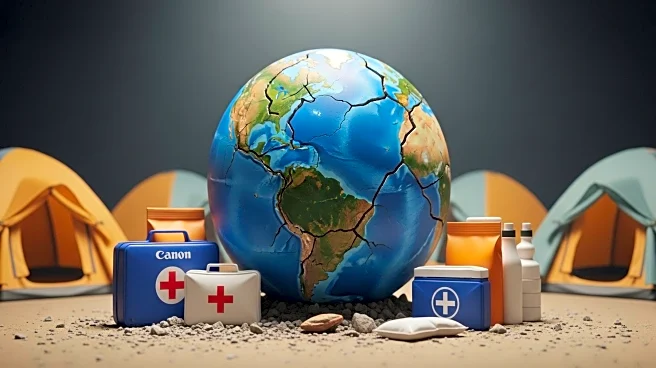What is the story about?
What's Happening?
The United Nations has emphasized the urgency of clearing debris and rebuilding after a catastrophic earthquake struck eastern Afghanistan on August 31, resulting in at least 2,200 fatalities. The 6.0-magnitude quake caused extensive damage to low-rise buildings in the mountainous Kunar province, leaving many families homeless and sleeping outdoors. The UN Development Program reported that approximately 40,500 truckloads of debris need removal. The Taliban government, alongside humanitarian groups, has been challenged by the remote and rugged terrain, deploying helicopters and army commandos for rescue operations. Aid workers have been providing cash, food, tents, and other necessities to affected communities.
Why It's Important?
The earthquake has exacerbated Afghanistan's existing crises, including economic struggles and climate-related stressors. The disaster highlights the need for international aid and cooperation to address the immediate humanitarian needs and long-term reconstruction efforts. The situation underscores the vulnerability of Afghanistan's infrastructure and the challenges faced by the Taliban government in managing large-scale relief operations. The international community's response will be crucial in supporting Afghanistan's recovery and stability.
What's Next?
Efforts to rebuild homes and restore water supplies are underway, with new roads being constructed to improve access to isolated areas. Various countries and organizations have pledged assistance for housing reconstruction, although this will take time. The UN continues to call for swift and safe debris removal and reconstruction operations. The ongoing humanitarian crisis may prompt further international aid and collaboration to support Afghanistan's recovery.















